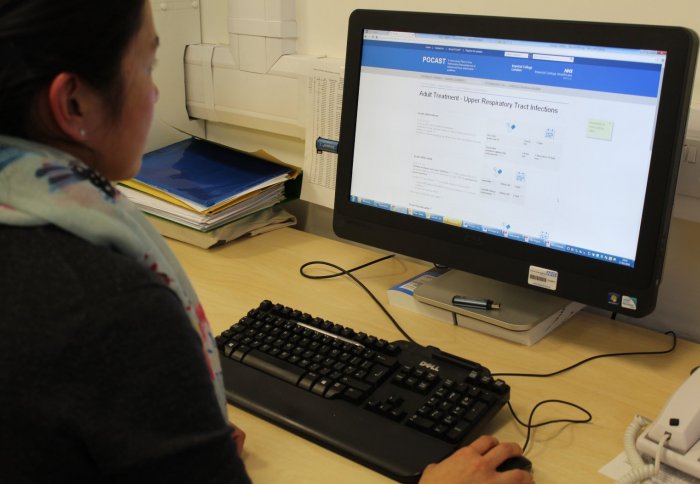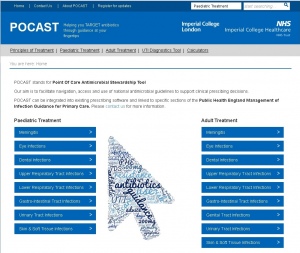New tool to improve antibiotic prescribing in doctor surgeries

A new website to help GPs prescribe antibiotics more effectively is being implemented in North West London.
Appropriate prescribing of antibiotics is essential for successfully treating infection and also to prevent bacteria becoming resistant to their use. It has been estimated that failing to tackle antimicrobial resistance (AMR) will result in at least 10 million extra deaths a year globally by 2050.
Most antibiotics are prescribed in the community and research has shown that providing doctors with data on prescribing, alongside patient education, can improve care and optimise the use of antibiotics.
By working with doctors in the community and the PHE we can help to ensure the effective use of antimicrobials across the whole patient care pathwa
– Alison Holmes
Professor of Infectious Diseases
POCAST (Point Of Care Antimicrobial Stewardship Tool) has been developed by a team of pharmacists, infectious disease specialists, GPs, nurses, microbiologists and researchers from Imperial’s National Institute for Health Research (NIHR) Health Protection Research Unit (HPRU), Patient Safety Translational Research Centre (PSTRC), and Imperial College Healthcare NHS Trust. It uses the latest Public Health England (PHE) guidelines and provides GPs with an instant and direct link to the relevant part of the guidelines at the point when they are considering antibiotics for a patient.
“The website is very simple,” says Monsey McLeod, research pharmacist at Imperial’s NIHR HPRU and PSTRC. “It presents the PHE guidelines in a way that enhances usability, navigability and accessibility, making it as easy as possible to prescribe effectively. Currently when a GP wants to prescribe an antibiotic, and they want to refer to the PHE guidance, they will need to sift through a 20-page document in a pdf format. However, POCAST will take GPs straight to the relevant part of the PHE guidelines for that antibiotic so they can view it in a user-friendly format. The plan is for the website to be open access so patients can also use it and learn more about antibiotic use to increase awareness around AMR.”

POCAST homepage
The website has grown out of the successful Imperial Anti-infectives app which is used in Imperial College Healthcare NHS Trust hospitals to provide information to doctors on wards. Using the lessons learnt from this app, POCAST aims to provide a similar service in the community. Having conducted a national survey of GPs, a website was deemed the most appropriate tool for doctors in surgeries who use a desktop computer when they are with a patient. Furthermore, the POCAST was recently selected by PHE for use in primary care and work is in progress to rebrand the tool for national use.
“Antimicrobial management is a key aspect of patient safety and clinical care,” says Alison Holmes, Professor of Infectious Diseases at Imperial College London, and principal investigator on the POCAST project. “By working with doctors in the community and the PHE we can help to ensure the effective use of antimicrobials across the whole patient care pathway and really tackle the problem of antimicrobial resistance.”
POCAST will initially be trialled in five Clinical Commissioning Groups (CCGs) in North West London, which covers approximately 247 general practices and 1.4 million patients. The research team will be analysing the traffic on the website and mapping the frequency of use, alongside collecting user feedback on how POCAST influences the work of GPs. Going forward, the team are hoping to evaluate how the POCAST website can enable discussions around antibiotics between GPs and patients.
Initial work on POCAST was funded by the Imperial College Healthcare Charity. POCAST is now supported by the NIHR Health Protection Research Unit in Healthcare Associated Infections and AMR at Imperial and the NIHR Imperial PSTRC (Patient Safety Translational Research Centre) and forms part of the Imperial College Healthcare NHS Trust cross-sector strategy for antimicrobial stewardship.
Article text (excluding photos or graphics) © Imperial College London.
Photos and graphics subject to third party copyright used with permission or © Imperial College London.
Reporter
Franca Davenport
Communications and Public Affairs